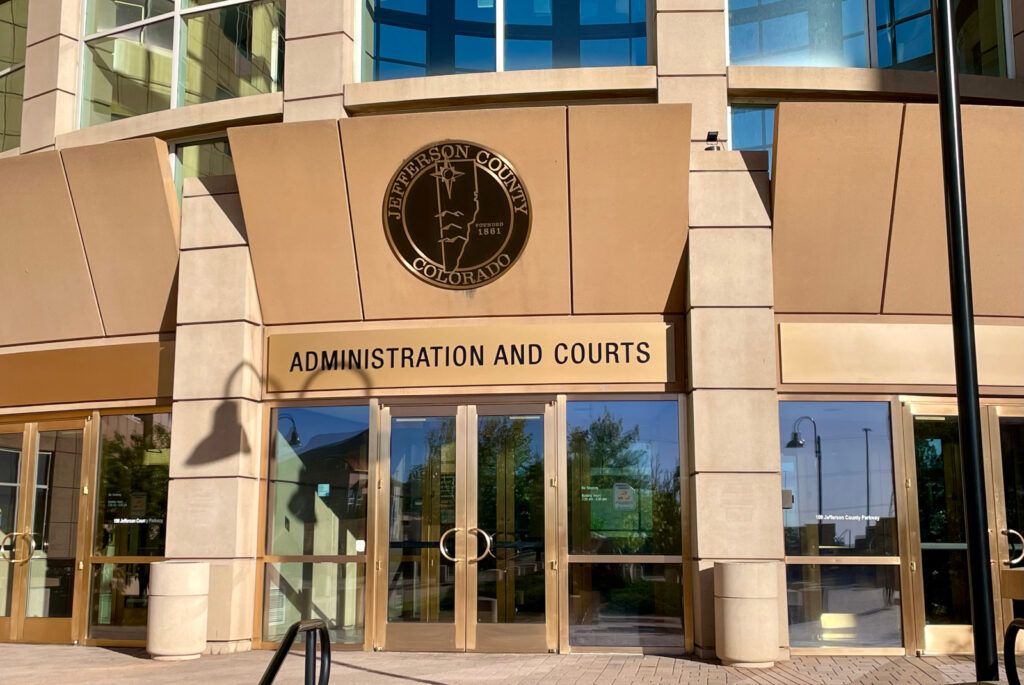By Jeffrey A. Roberts
CFOIC Executive Director
The Colorado Court of Appeals has stayed a judge’s order to disclose blurred body-worn camera footage of Lakewood police officers shooting and killing a 17-year-old robbery suspect, pending the outcome of an appeal by the city.
Scripps News sued Lakewood in January for withholding the video from reporter Lori Jane Gliha, despite mandatory-release deadlines in Colorado’s Law Enforcement Integrity Act. Jefferson County District Court Judge Chantel Contiguglia on May 24 found that “a plain reading of the law” requires release of the footage, rejecting the city’s claim that the Colorado Children’s Code protects the deceased teen’s privacy.
But after Lakewood appealed the ruling in August, it argued that “releasing protected privacy content is a bell that cannot be unrung” and that disclosure of the video would “irreparably harm” the city and the rights of the minor.

“The only harm which could result to” Scripps News by granting the stay motion “is the harm of not possessing the BWC footage for some purported newsworthy purpose,” wrote senior city attorney Patrick Freeman in a Court of Appeals brief.
Representing Scripps, media attorney Steve Zansberg reminded the appellate judges that the Law Enforcement Integrity Act required the release of the body-camera footage to Gliha within 21 days of her request. He argued against the stay because of a “compelling public interest” in the video.
“The BWC recordings at issue in this case contemporaneously memorialize the conduct of three peace officers, on duty, in discharging their official duties, and in deploying overwhelming deadly force (up to 30 shots fired between them), in ending the life of a 17-year-old girl,” Zansberg wrote.
Zansberg, who is president of the Colorado Freedom of Information Coalition, also countered Freeman’s argument for protecting the privacy of the deceased minor, Mariana Martinez, whose name and cause of death “are matters of public record.” He provided the appellate court with several examples of Colorado jurisdictions that have voluntarily released blurred body-camera recordings depicting minors “without hesitation or protracted legal proceedings.”
“Nevertheless,” Lakewood’s records custodian “continues to maintain that she is legally barred, as a matter of law, from releasing such footage (with the entire head of the 17-year-old decedent blurred, per the District Court’s Order) because Appellant is of the erroneous belief that Colorado’s Juvenile Code absolutely prohibits such disclosure, or that she cannot do so unless surviving family members consent.”
Redactions are permitted under the Law Enforcement Integrity Act if a video “raises substantial privacy concerns” for criminal defendants, victims, witnesses, juveniles or informants. Contiguglia, who reviewed the video in private, ordered Lakewood to blur the “entirety” of Martinez’s head before the footage was to be released because of the “distinct coloring of her hair.”
According to a news story, Lakewood police initially said Martinez fired at officers on March 27, 2023, but clarified the next day that she pointed a gun at them. In September 2023, First Judicial District Attorney Alexis King found that the officers’ use of deadly force “was legally justified to defend themselves and others.”
Follow the Colorado Freedom of Information Coalition on X (formerly Twitter) @CoFOIC. Like CFOIC’s Facebook page. Do you appreciate the information and resources provided by CFOIC? Please consider making a tax-deductible donation.




